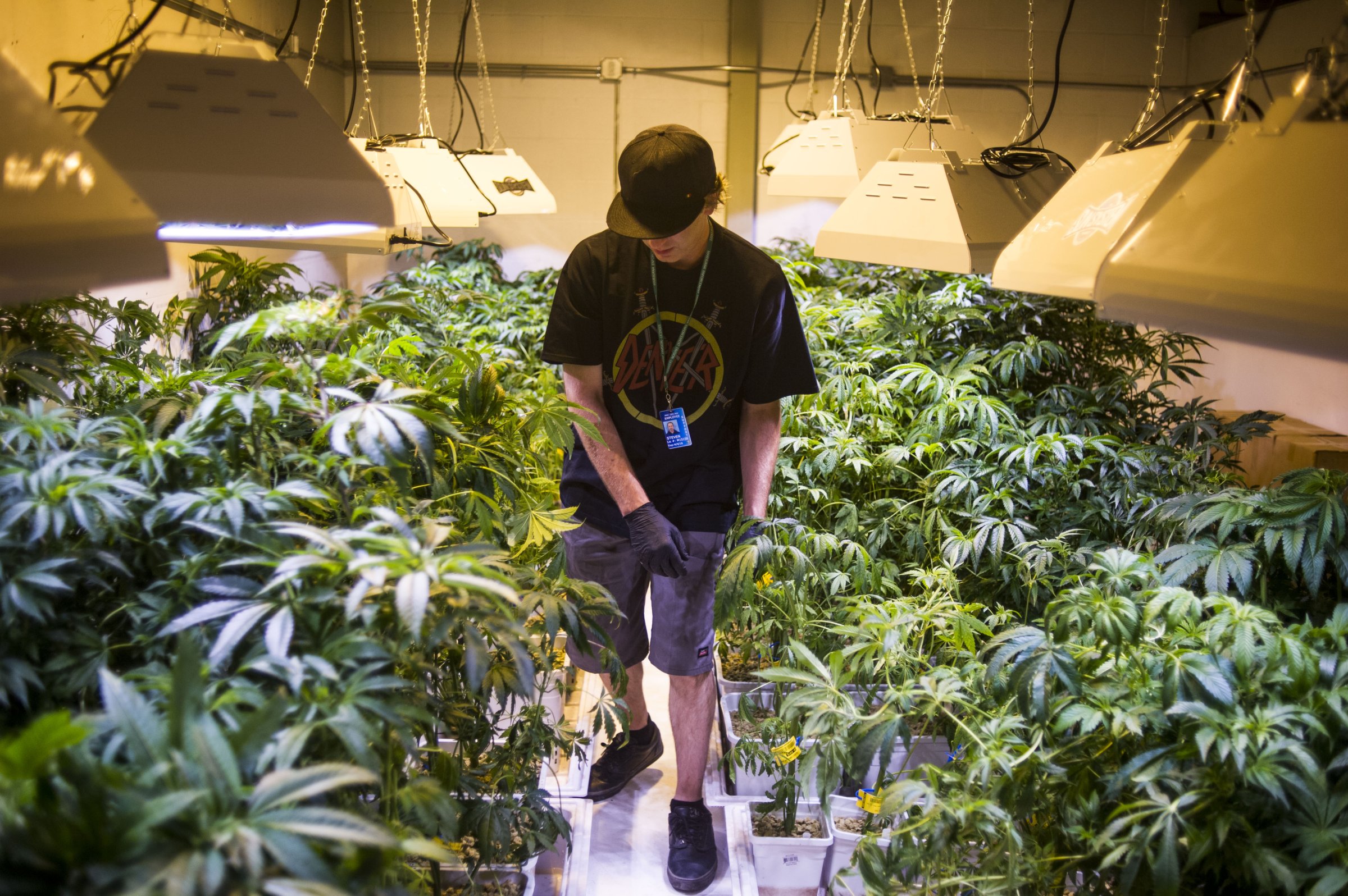
The 2014 elections are shaping up to be the most expensive in history, not for electoral campaigns, but for ballot initiatives. More than $1 billion has already been spent on them, according to the National Institute of Money in State Politics. And all that money could swing some key races.
Studies have shown controversial ballot initiatives can boost turnout as much as 8% in midterm elections, which typically see lower turnout than polling during presidential elections. Since Oregon first kicked off ballot initiatives in the early 1900’s, the practice has grown steadily — that is, until this year. Despite the increase in spending, 2014 actually has the least number of total initiatives — only 155 in 41 states, down from 188 in 2012—since 1988, reflecting state efforts to limit legislating by ballot.
Some of the millions already spent were intended to keep certain measures off the ballot. In Alaska, for example, oil and gas companies spent $170 per voter to block a bid to raise oil and gas taxes. In Colorado, energy companies also spent millions to keep fracking initiatives off the ticket. Also not making the cut this year: gay marriage and a push to break California into six states that, while strange, gained a lot of attention early on.
Perhaps the main issue on ballots nationwide this cycle is marijuana. Two states — Oregon and Alaska — plus the District of Columbia have initiatives to follow Colorado and Washington in legalizing recreational marijuana. But it’s a push to make Florida the 24th state to legalize medical marijuana that could impact an electoral race. Former Democratic Florida Gov. Charlie Crist’s bid to get his old gubernatorial seat back could see a boost from the measure, as left-leaning voters tend to support marijuana reform. Crist allies have already spent $4 million on the initiative with opponents, including incumbent Florida Gov. Republican Rick Scott and Sheldon Adelson, spending $2.5 million to defeat it thus far.
Another big issue is minimum wage, with four red states—Arkansas, Alaska, Nebraska and South Dakota—considering raising the minimum wage. Since 2002, all 10 ballot initiatives to raise state minimum wages have passed, and polling shows these initiatives look like they have good shots at approval as well. The pushes could help embattled Democratic incumbent Senators Mark Pryor in Arkansas and Mark Begich in Alaska.
Colorado Sen. Mark Udall, another Democratic incumbent fighting to keep his seat, is hoping that a personhood amendment —which defines life as beginning from the moment of conception — will help him stick around. His opponent, Rep. Cory Gardner, also opposes the amendment, but has voiced support for personhood initiatives in the past, creating an opening Udall has been exploiting. North Dakota has a similar initiative on the ballot, and Tennessee has a measure that would allow the state legislature to amend the state constitution to strip out abortion rights.
However, some of the most expensive ballot issues are not national ones. In California, two initiatives — one to increase the limit of non-economic malpractice damages from $250,000 to $1.1 million and another requiring state approval of changes in insurance rates — could see as much as $100 million in combined spending to sway voters. And Oregon and Colorado have controversial initiatives mandating the labeling of certain foods that contain genetically modified organisms. Last year, companies like Pepsi, Coca Cola and Monsanto spent $22 million defeating a similar push in Washington where proponents spent $9 million trying to pass it.
Oregon also has a controversial immigration initiative that would uphold a law allowing four-year driver’s licenses for those who cannot prove legal presence in the U.S. Another big-spending item is a spate of gambling initiatives in seven states expected to draw more than $100 million, including a hard-fought initiative in Massachusetts that would repeal a 2011 law allowing gambling resorts that would halt construction on sites.
A gun rights conundrum could happen in Washington, which looks poised to pass two initiatives that countermand one another. One would require universal background checks for all guns, and another forbids more extensive background checks than those required at the federal level. Officials say such a situation has never happened before, and no one is sure what would happen if both pass. Also on guns, Alabama is also looking to become the third state after Louisiana and Missouri to pass a “fundamental right to bear arms,” making it harder to restrict firearm access.
Alabama is also seeking to become the eighth state to forbid state’s recognition of laws violating its policies, including all foreign law. This measure is a follow up to a bill introduced by state Sen. Gerald Allen last year that specifically references Sharia law.
Missouri and Connecticut are looking to joining 33 other states and the District of Columbia in early voting.
And, finally, Maine is looking to ban bear baiting, trapping or the use of dogs to hunt bears. Long live Smokey.
More Must-Reads from TIME
- Donald Trump Is TIME's 2024 Person of the Year
- Why We Chose Trump as Person of the Year
- Is Intermittent Fasting Good or Bad for You?
- The 100 Must-Read Books of 2024
- The 20 Best Christmas TV Episodes
- Column: If Optimism Feels Ridiculous Now, Try Hope
- The Future of Climate Action Is Trade Policy
- Merle Bombardieri Is Helping People Make the Baby Decision
Contact us at letters@time.com